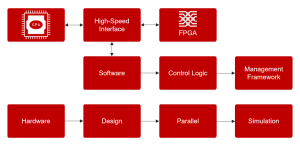Quantum computing is a calculation method based on the principle of quantum mechanics, which uses quantum bits (qubits) to perform computing tasks. Quantum computers have the potential to significantly surpass conventional computers on certain specific tasks, such as in areas such as drug discovery, materials science, cryptography, and optimization problems. With the rapid development of quantum technology, the demand for the research and application of quantum computing is constantly increasing.
